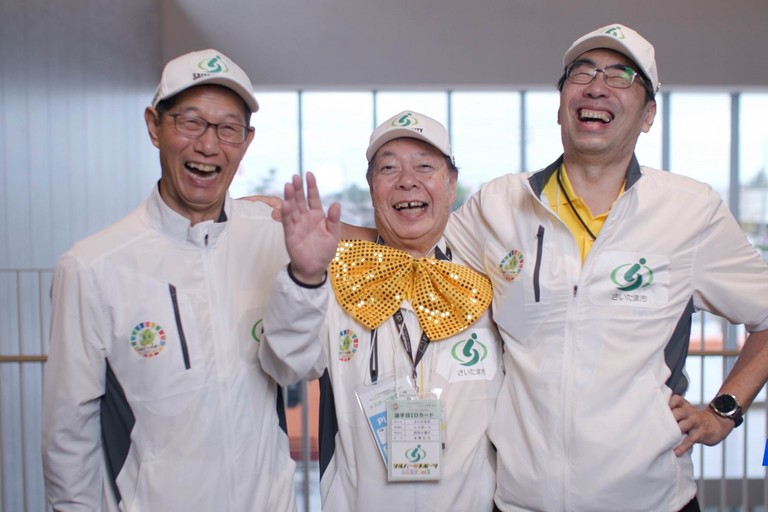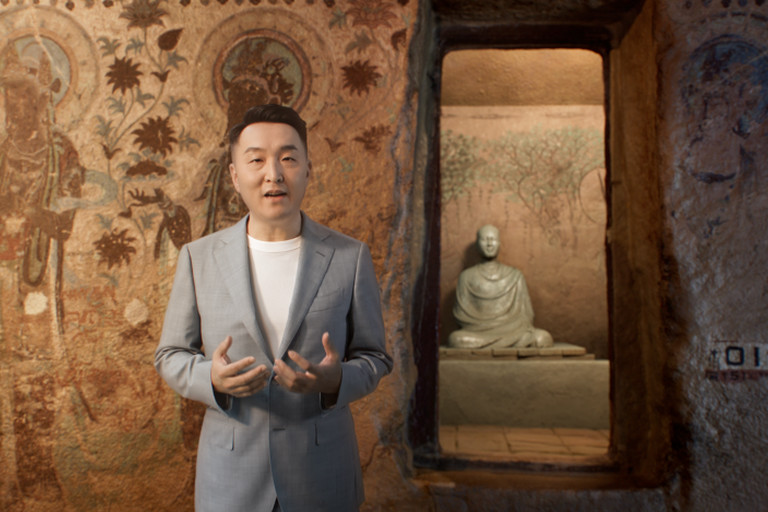Can Game Therapy Help Delay Alzheimer’s? A Tencent Innovation Offers Clues
A 90-year-old woman walked slowly in circles, carefully calibrating each step, for hours. She only spoke to say she was waiting for her mother to pick her up and take her home – a recurring memory that came to life during her fight against late-stage Alzheimer’s disesase.
“That image of her circling, holding onto a single memory, inspired me to act,” says Wendy Wang, the brain training project lead at Tencent's Sustainable Social Value (SSV) team.
Wang, moved by the elderly woman, was inspired to find a digitally-powered health breakthrough—an unexpected one that could offer new hope to millions living with early-stage cognitive decline.
The moment became the catalyst for a multi-year, cross-disciplinary effort across Tencent’s games, health tech, and cloud teams. Their mission: to evaluate whether early intervention through game-based cognitive training could help delay the onset of Alzheimer’s, a debilitating disease that can almost wipe a person’s memory.
The team came up with a gamified digital therapeutic tool to aid cognitive wellness called Tencent Brain Training, and it’s already available for prescription by licensed physicians in China.
A growing concern for an aging population
Alzheimer’s is the most common form of dementia, the collective term to describe a group of brain disorders that mostly affect older people. As the global population ages, the burden is growing: nearly 140 million people are expected to be living with dementia by 2050, up from 57 million in 2021. It’s also a leading cause of death among older people, according to Alzheimer’s Disease International and the World Health Organization.
Although irreversible, there’s growing consensus that intervening early – at the mild cognitive impairment (MCI) stage – can delay cognitive decline. But delivering that care at scale, in a way seniors will actually use, is a major healthcare challenge.
Wang and her colleagues at Tencent set out to address this, starting with lessons learned from a simple mobile game.
From Mini Program to medical application
The foundation for the project came from Pavlov: Brain’ It On, a light cognitive training game developed by Tencent Games’ Social Value Exploration Center for the Weixin Mini Program.
This time, they wanted to see if the learnings from Pavlov: Brain’ It On could be applied to clinical settings like hospitals and nursing homes. Could a game become a medically credible intervention?
To find out, the project team partnered with Tencent Cloud’s medical imaging platform to develop a solution purpose-built for clinical use. Working closely with psychologists, clinicians, and UX designers, they laid the groundwork for a product that was medically sound, engaging, and accessible.
Built with seniors, for seniors
One of the project’s key contributors was Allen Lin, a gaming business analyst at Tencent who became the unexpected bridge between developers and healthcare professionals.
“We didn’t start with medical credentials, we started with a desire to help. And then we learned, intensely,” Allen recalls.
Determined to close the gap between gaming and geriatric care, Allen immersed himself in medical research, reading papers and collaborating closely with clinicians. But the most valuable insights came from getting out and listening directly to older users. The team embedded themselves in retirement communities, co-designing every feature based on real-life behaviors and preferences.
They discovered that effective cognitive therapy for seniors must be:
- Visually bold, with large fonts and high contrast.
- Tap-based, (not swipe-based), to match motor abilities.
- Built around real and relatable tasks, such as cooking, organizing clothes, music, and poetry.
Partnering with the Weixin Mini Games team and experts such as the Professor of Psychology at Sun Yat-sen University Dr. Yixuan Ku, they developed four core training modules that target different brain functions, from memory and attention to language and social cognition. To deliver meaningful cognitive benefits, the software encourages consistent play at least three to five sessions per week over a 12-week period.
Clinical trials, validation, and certification
The next crucial step was clinical validation. To test the efficacy of their solution, the team partnered with two leading medical institutions in China to conduct clinical trials with patients experiencing MCI.
Participants were split into two groups: one used Tencent Brain Training, the other received no intervention.
After 12 weeks:
- The intervention group showed significant improvement in cognitive scores.
- The control group experienced a slight decline.
- Participants also reported improved memory, reduced frustration and safer daily living
“It helped me remember small things again, like not leaving the gas on. My family noticed too,” says one trial participant.
Following the trial, Tencent Brain Training received official certification as a medical device by the Guangdong Medical Products Administration. That means doctors in China can prescribe it as early stage therapy for patients with MCI.
Digital health innovation at work
Tencent Brain Training demonstrates how consumer technology can evolve into healthcare-grade solutions through inclusive design, scientific validation, and cross-sector collaboration. This gamified therapy offers a scalable, non-invasive, and affordable model to address cognitive decline at its earliest stages.
“Games are more than entertainment — they’re powerful digital tools with potential far beyond,” said Qu Jiang, Director at Tencent Games’ Social Value Exploration Center. She noted that global examples show games can bring real value to healthcare, with gamified interventions proven effective by science. Addressing challenges like cognitive impairment requires long-term, sustainable solutions, which is why the Center’s commitment in this field is ongoing.
The elderly woman who inspired the project may never experience its benefits. But for millions with less advanced Alzheimer’s, Tencent’s game-turned-therapy offers a new tool in the fight to preserve memory, dignity, and independence.
Want to see more?
Want to see how gaming and emotional connection are also helping seniors thrive and how Tencent Games breaks barriers and builds bridges?




